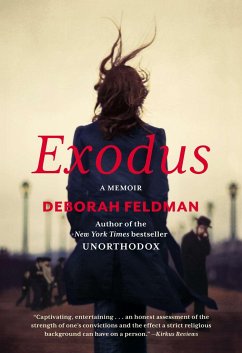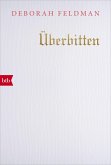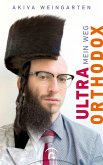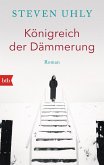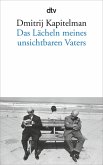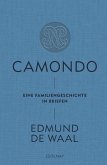The author of the explosive New York Times bestselling memoir Unorthodox (now a Netflix limited series) chronicles her continuing journey as a single mother, an independent woman, and a religious refugee.
In 2009, at the age of twenty-three, Deborah Feldman walked away from the rampant oppression, abuse, and isolation of her Satmar upbringing in Williamsburg, Brooklyn to forge a better life for herself and her young son. Since leaving, Feldman has navigated remarkable experiences: raising her son in the real world, finding solace and solitude in a writing career, and searching for love. Culminating in an unforgettable trip across Europe to retrace her grandmother s life during the Holocaust, Exodus is a deeply moving exploration of the mysterious bonds that tie us to family and religion, the bonds we must sometimes break to find our true selves.
In 2009, at the age of twenty-three, Deborah Feldman walked away from the rampant oppression, abuse, and isolation of her Satmar upbringing in Williamsburg, Brooklyn to forge a better life for herself and her young son. Since leaving, Feldman has navigated remarkable experiences: raising her son in the real world, finding solace and solitude in a writing career, and searching for love. Culminating in an unforgettable trip across Europe to retrace her grandmother s life during the Holocaust, Exodus is a deeply moving exploration of the mysterious bonds that tie us to family and religion, the bonds we must sometimes break to find our true selves.
Praise for Exodus
One woman's search to understand herself and her Jewish heritage. . . . Rich in details of Jewish life and the lives of her grandparents in the World War II era, [Feldman] sensitively portrays the inner struggles of accepting the pervasive feeling of survivor guilt and her own desires to understand the woman she was becoming. . . . An enthralling account of how one Orthodox Jewish woman turned her back on her religion and found genuineness and validity in her new life. Kirkus Reviews
Feldman s journey is undeniably and explicitly Jewish, but the aching need to find both a welcoming community and a sense of individuality is one that readers from all walks of life will be able to identify with. Those left unsatisfied with the abrupt ending to Unorthodox will enjoy the more hopeful conclusion to Feldman s second book as well as her more mature and increasingly eloquent writing style. Booklist
Overall, Exodus is a satisfying sequel to Unorthodox, which shows how Deborah Feldman went on to the next step after getting her own freedom from the bonds of a strictly insular society. . . . [A] chronicle of a continuing journey of self-discovery . . . There are many satisfying finds and revelations along the road, but there are also plenty of bumps, frustrations, disappointments, and pitfalls, which is expected when one spends their formative years being closed off from the rest of the outside world, and is confined to the boundaries of a Brooklyn neighborhood. . . . This book is more about the liberation of Deborah Feldman, and how she copes with this newfound sense of freedom and self-discovery, that can be a shock to some, or a declaration of independence for others. Stuart Nulman, Montreal Times
In her first memoir, Unorthodox, Feldman made the courageous choice to cut off ties with her family and the Satmar community of Williamsburg, Brooklyn. . . . Now a divorced woman in her twenties, Feldman chronicles the next phase of her life in her new book [Exodus]. . . . A quest of self-discovery . . . Some of the most powerful scenes come when Feldman retraces the path of her female ancestors in Hungary and confronts the anti-Semitism of contemporary Europe. . . . Feldman ultimately discovers that her rightful place is wherever she happens to be. The New York Times Book Review
One woman's search to understand herself and her Jewish heritage. . . . Rich in details of Jewish life and the lives of her grandparents in the World War II era, [Feldman] sensitively portrays the inner struggles of accepting the pervasive feeling of survivor guilt and her own desires to understand the woman she was becoming. . . . An enthralling account of how one Orthodox Jewish woman turned her back on her religion and found genuineness and validity in her new life. Kirkus Reviews
Feldman s journey is undeniably and explicitly Jewish, but the aching need to find both a welcoming community and a sense of individuality is one that readers from all walks of life will be able to identify with. Those left unsatisfied with the abrupt ending to Unorthodox will enjoy the more hopeful conclusion to Feldman s second book as well as her more mature and increasingly eloquent writing style. Booklist
Overall, Exodus is a satisfying sequel to Unorthodox, which shows how Deborah Feldman went on to the next step after getting her own freedom from the bonds of a strictly insular society. . . . [A] chronicle of a continuing journey of self-discovery . . . There are many satisfying finds and revelations along the road, but there are also plenty of bumps, frustrations, disappointments, and pitfalls, which is expected when one spends their formative years being closed off from the rest of the outside world, and is confined to the boundaries of a Brooklyn neighborhood. . . . This book is more about the liberation of Deborah Feldman, and how she copes with this newfound sense of freedom and self-discovery, that can be a shock to some, or a declaration of independence for others. Stuart Nulman, Montreal Times
In her first memoir, Unorthodox, Feldman made the courageous choice to cut off ties with her family and the Satmar community of Williamsburg, Brooklyn. . . . Now a divorced woman in her twenties, Feldman chronicles the next phase of her life in her new book [Exodus]. . . . A quest of self-discovery . . . Some of the most powerful scenes come when Feldman retraces the path of her female ancestors in Hungary and confronts the anti-Semitism of contemporary Europe. . . . Feldman ultimately discovers that her rightful place is wherever she happens to be. The New York Times Book Review

